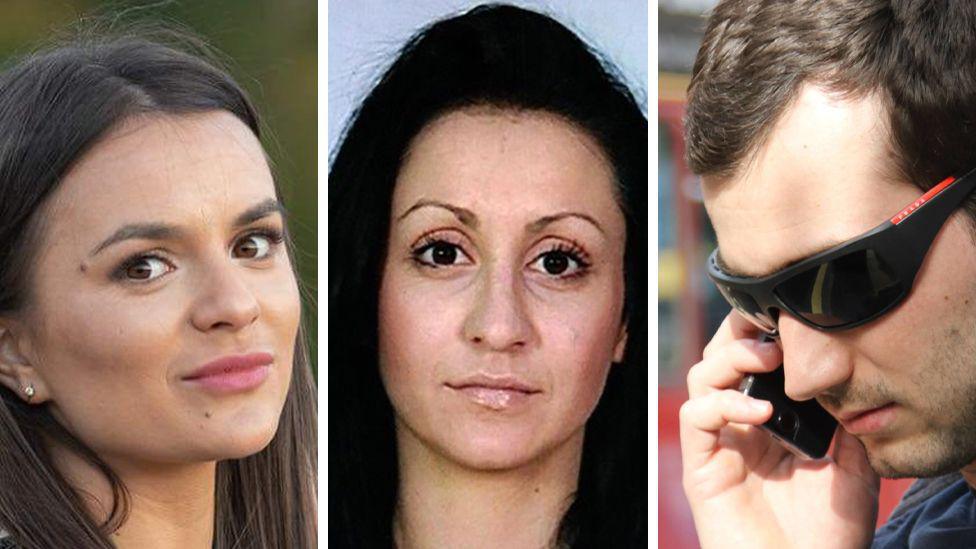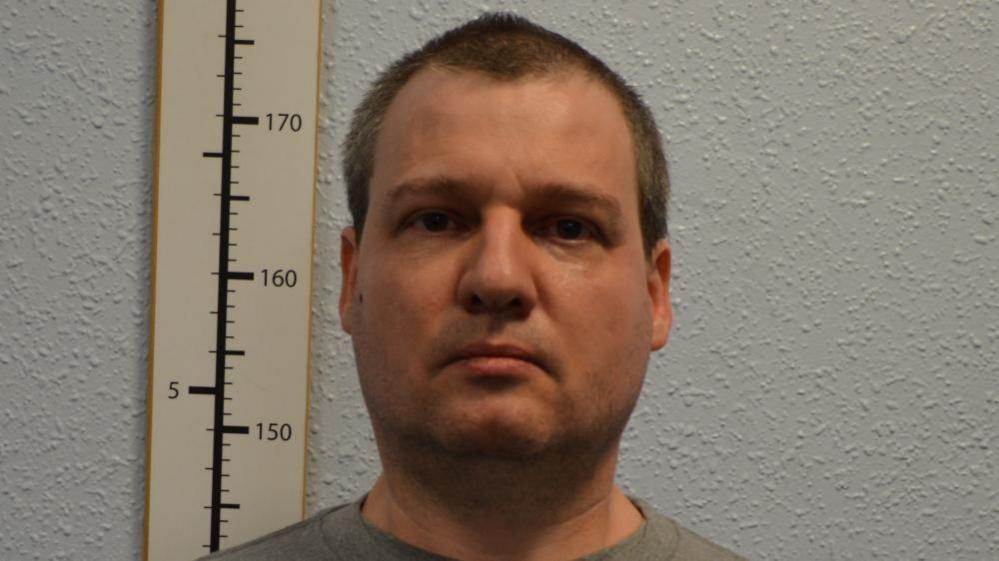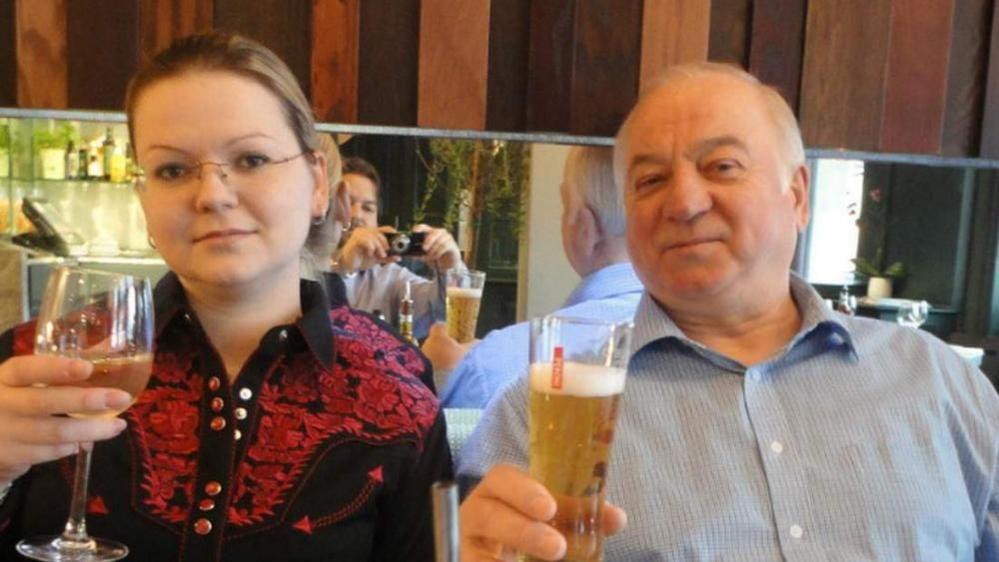Russian spies surveilled Ukrainian troops at US base, trial hears

Vanya Gaberova, Katrin Ivanova and Tihomir Ivanchev, all from London, deny a charge of conspiracy to spy
- Published
A Russian spy ring operating out of the UK tried to use sophisticated surveillance equipment to compromise and track the mobile phones of Ukrainian soldiers being trained at a US airbase in Germany, a court has heard.
The operation, which was only stopped after the suspects were arrested, would have had profound implications for Ukraine’s defence.
Katrin Ivanova, 33, Vanya Gaberova, 30, and Tihomir Ivanchev, 39 - all Bulgarian nationals living in the UK - deny conspiring to spy. Ms Ivanova also denies possessing multiple false identify documents.
Orlin Roussev, 46, from Great Yarmouth, and Biser Dzhambazov, 43, from London, have already admitted being part of a conspiracy to spy.
Roussev acted as the organiser, taking instructions from an Austrian national – Jan Marsalek – who was acting as a Russian agent, the court was previously told.
The court also heard how the spy ring planned to cover the Kazakhstan Embassy in London in fake pig’s blood as part of a staged protest.
As part of that same operation, the group discussed creating “deepfake” porn videos of the son of the President of Kazakhstan or seducing him in a “honeytrap”.
The three defendants stand accused of participating in six different operations, all of which the prosecution alleges were to the direct advantage of the Russian state.
The prosecution is still setting out its opening arguments, which today covered the third, fourth, fifth and sixth operations.
The third operation involved complex surveillance activity against Bergey Ryskaliyev, a former Kazakh politician living in exile in the UK, the court heard. It is alleged the group used black taxis, Deliveroo drivers and a fake NHS vehicle in order to surveil him.
Operation four was said to have targeted the Kazakh embassy and the son of the Kazakh president, a Russian ally. The prosecution claimed that the plans were to curry favour with the president, by offering solutions to problems of their own making.
The fifth operation took place at a sensitive US military base near the German city of Stuttgart, where Ukrainian soldiers were being trained on how to use the Patriot air defence system, the court heard.
A sophisticated piece of surveillance equipment called a “Stealth Catcher IMSI Grabber” was to be used to gather the details of the personal phones of Ukrainian troops there, the prosecution said.
It was alleged that one of the defendants, Katrin Ivanova, was going to operate the equipment.
If successfully gathered, this would have allowed the geolocation of the air defence systems once in the field, giving Russia a significant military advantage.
The final operation presented by the prosecution involved a plan to kidnap or kill a Russian dissident named Kirill Kachur, it said.
The court heard how all three defendants took part in a complex surveillance mission that involved a chain-smoking, fast food loving, Russian spy codenamed Red Sparrow.
One of the messages presented to the jury said: “Our friends would like to see him return to Russia… we don’t mind if he dies by accident, but better if he manages to find his way to Moscow.”
The prosecution says the existence of these schemes is not in doubt - thousands of messages set out the details, with Orlin Roussev and Biser Dzhambazov having already admitted their role in the operations.
What is in question is the extent to which the three on trial - Katrin Ivanova, Vanya Gaberova, and Tihomir Ivanchev - were aware of the nature of the work they were doing.
All three deny the charges and the trial continues.
- Published28 November 2024

- Published2 December 2024
